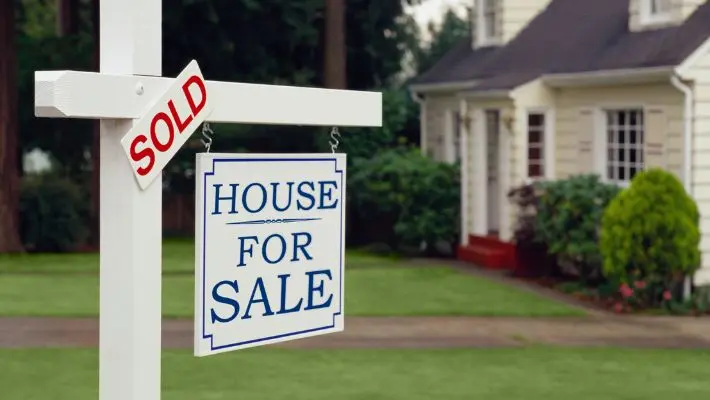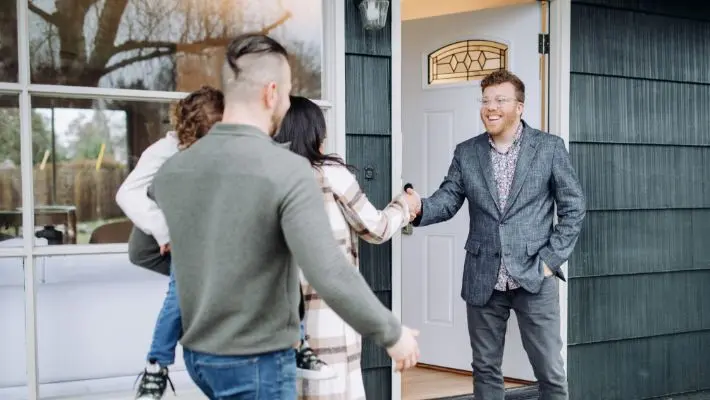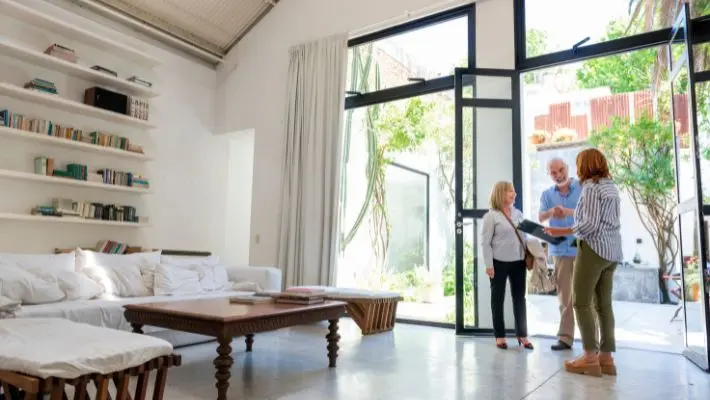
What are Closing Costs?
It’s important buyers know what closing costs are, how they're calculated, and when they need to be paid. Here's the lowdown on closing costs.
As home shoppers prepare to embark on the transaction of a lifetime, they’ll start to hear the phrase “closing costs” floating around as they start gearing up for the home buying transaction process.
With plenty of financial terms to consider and understand as part of the buying process, it’s important buyers know what closing costs are, how closing costs are calculated, when exactly these costs get paid — and who’s responsible to pay them.
Read on to learn more about closing costs and everything buyers need to know ahead of their home purchase.
Everything Home Buyers Need to Know About Closing Costs
Home buyers have plenty of financial details to consider, plan, and prepare for when they’re getting ready to search for and purchase a home. As they start their home search, they also need to save up for and secure a down payment.
Then, they can work with a mortgage lender to get pre-approved for a mortgage loan, which helps define their home buying budget. Closing costs, or mortgage closing costs, are the fees and expenses buyers need to pay — aside from the down payment. The mortgage loan the buyer secures defines what their closing costs will be.
As they approach the end of the transaction process, it’s important for buyers to be aware of closing costs so they don’t sneak up on them as a surprise set of fees.
How Are Closing Costs Calculated?

Closing costs are calculated during the mortgage loan approval process. These costs are typically between 2% to 6% of the total mortgage loan amount. Closing costs are dependent on the type of mortgage loan a buyer secures and the area in which they’re purchasing their home. The exact amount of the closing costs covers fees for home buying services, which include but are not limited to:
- Home appraisal fees
- Attorney fees
- Title insurance and title lookup
- Origination and underwriting of the mortgage loan
- Application fees
- Homeowner’s insurance
- Closing fees
- Escrow fees
In short, any additional services directly related to and required for purchasing a home will be a part of a buyer’s closing costs.
When Are Closing Costs Paid?
Closing costs, like their name says, are paid on closing day at the end of the home buying transaction. Buyers should prepare to have and pay these fees at the time of closing. At that point, the mortgage lender will accept the buyer’s down payment funds for the home purchase, along with their payment of closing costs.
Does the Home Seller Have to Pay Closing Costs, Too?

Believe it or not, it’s not just the buyers who are on the hook for closing costs — sellers also have to pay closing costs of their own, too. The seller’s closing costs are related to fees for home selling services, such as hiring a real estate agent, property maintenance and repairs, paperwork, and more. Unlike buyers, who have to save up and provide additional funding for their payment of closing costs, sellers usually have their closing costs deducted from the proceeds of the home sale.
As buyers navigate the home purchase process, they have an opportunity to work with their real estate agent to negotiate with the seller and have them assist in covering the buyers’ closing costs. These agreements are known as seller concessions.
Seller concessions offer a win-win for both buyer and seller: the buyer gets to save on how much money they’ll need to put down at the time of closing, and the seller gets to make an attractive offer back to the buyer, effectively helping their home sell more quickly. If a seller agrees to these concessions, the buyer gets a hand in how much cash they’ll need to pay on closing day.
It’s important to note that sellers do have limits on how much funding they can offer to contribute toward a buyer’s closing costs. Sellers can only contribute a certain percentage of the total amount of the mortgage loan. These limits and amounts are defined by the following factors:
- The type of mortgage loan the buyer secured
- The amount of the buyer’s down payment
- Whether or not the home is the buyer’s primary residence or an investment property
Closing Costs Shouldn’t Be a Surprise
Home buyers need to be empowered and educated at every step of the home shopping and buying journey. The transaction process can be complex, and it’s crucial buyers don’t miss any details or get shocked by important fees — especially on closing day. Thankfully, buyers have options. Did you know one of the best and most effective ways to stay ahead of every step of the transaction process is to work with a top real estate agent in your area?
Real estate agents know the transaction process like the back of their hand and are deeply skilled in supporting buyers so no surprise fees sneak up on them. They can also expertly navigate the negotiation process, which can help buyers secure things like seller concessions. Connect with a trusted, expert real estate agent in your area today on RealEstateAgents.com!






